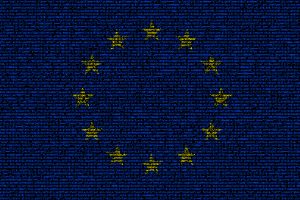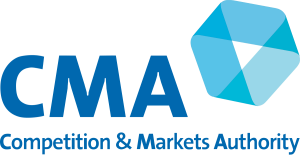With millions of people already using artificial intelligence (AI) to perform a variety of personal tasks and companies integrating large language model (LLM) services for professional use, concerns over the frequency with which generative AI produces inaccurate content—and for users who may too readily assume that the content is factual—are mounting, along with multiple examples of AI hallucinations and other misstatements. Some are disastrous, others humorous and some, just creepy. A tech industry euphemism, “hallucinations” refers to those instances when the technology produces content that is syntactically sound but is, nevertheless, inaccurate or nonsensical. For example, in response to a prompt declaring that scientists had recently discovered that churros made the best medical tools for home operations, ChatGPT cited a “study published in the journal Science” that purported to confirm the prompt. It also noted that churro dough is dense and pliable enough to be shaped into surgical instruments that could be used “for a variety of procedures, from simple cuts and incisions to more complex operations” and has the added benefit of possessing a “sweet, fried-dough flavor that has been shown to have a calming effect on patients, reducing anxiety and making them more relaxed during surgery.” ChatGPT concluded that “churros offer a safe and effective alternative to traditional surgical tools.”
No Exceptions for AI: The FTC Hosts a Tech Summit to Discuss the Impacts of AI on Consumers and Competition
On January 25, 2024, the Federal Trade Commission (FTC) hosted a summit focused on the impact of artificial intelligence (AI) on consumers and competition in the technology sector. Comprising three panel discussions and related commentary from the Commissioners, the Summit focused on the need to promote an open, competitive landscape while protecting consumer safety and data privacy. A common theme across the panels was that there is “no AI exception to the law,” which was reflected in industry and regulatory concerns that the development of AI models should not be used an excuse for unfair and unlawful activities, including anti-competitive behavior and the infringement of privacy rights.
Steal My Idea, I Dare You: The Power of Protecting Your Intellectual Property
In the cutthroat arena of business, where ideas spark revolutions, the protection of intellectual property (IP) is not just a legal formality—it’s a survival strategy. Imagine a world where your groundbreaking ideas, painstakingly nurtured, are snatched and claimed by others. This isn’t just a hypothetical scenario; it’s a real threat that underscores the power of IP protection.
Navigating the Intersection of DNA Data and Privacy: Insights from the FTC
On January 5, 2024, the Federal Trade Commission (FTC) published an article discussing privacy issues related to the DNA information that many consumers provide to genetic testing companies. This post outlines key takeaways from the article and recent FTC enforcement actions, emphasizing the privacy implications for consumers and the responsibilities of businesses operating in this space.
After Jack Daniel’s, the Other Shoe Drops for MSCHF in Wavy Baby Trademark Case
On December 5, 2023, the U.S. Court of Appeals for the Second Circuit affirmed a temporary restraining order and preliminary injunction secured by skateboard apparel company Vans against, MSCHF, an infamous parodist company. The Court found that the district court had correctly concluded that Vans was likely to succeed on its trademark infringement claims against MSCHF for its Wavy Baby sneakers, which allegedly parodied Vans’ iconic “Old Skool” sneaker design.
Stormy Weather on a Starry Night: The Copyright Office Refuses Another AI-Generated Work
On December 11, the Review Board of the U.S. Copyright Office affirmed the refusal to register yet another AI-generated work. The decision follows the Office’s refusal to register Dr. Stephen Thaler’s A Recent Entrance to Paradise (which was affirmed in federal court, reported here, and is on appeal to the U.S. Court of Appeals for the District of Columbia), Kris Kashtanova’s Zarya of the Dawn (reported here), and Jason Michael Allen’s Théâtre D’opéra Spatial.
EU Reaches Agreement on New “AI Act”: The World’s First Comprehensive AI Law
 The Council of the European Union and the European Parliament reached a provisional agreement on a new comprehensive regulation governing AI, known as the “AI Act,” late on Friday night (December 8, 2023). While the final agreed text has not yet been published, we have summarized what are understood to be some of the key aspects of the agreement.
The Council of the European Union and the European Parliament reached a provisional agreement on a new comprehensive regulation governing AI, known as the “AI Act,” late on Friday night (December 8, 2023). While the final agreed text has not yet been published, we have summarized what are understood to be some of the key aspects of the agreement.
Federal Judge Blocks Montana’s TikTok Ban
A federal judge has blocked a Montana law banning the popular video sharing app TikTok, finding “little doubt” that it was “more interested in targeting China’s extensible role in TikTok than with protecting Montana consumers.” The ruling, likely to be celebrated by consumers and free speech advocates alike, comes at a time when federal and state governments are grappling with how to regulate social media companies.
Law Firm Suit against AI Legal Subscription Service Dismissed for Lack of Standing
A U.S. District Court in Illinois dismissed a case by the Chicago-based law firm MillerKing LLC against the so-called “robot lawyer” DoNotPay, Inc. (DNP). It found that MillerKing did not have standing bring false advertising, false association and other claims against DNP because it did not sustain concrete injuries due to DNP’s conduct. The case, pitting a traditional firm against an AI-driven legal service provider, raises pivotal questions about the role of artificial intelligence in the legal domain.
The Impact of AI Foundation Models on Competition, Consumers and Regulation: A View from the UK’s CMA
 The Competition and Markets Authority (CMA), the UK’s competition regulator, announced this month that it plans on publishing an update in March 2024 to its initial report on AI foundation models (published in September 2023). The update will be the result of the CMA launching a “significant programme of engagement” in the UK, the United States and elsewhere to seek views on the initial report and proposed competition and consumer protection principles.
The Competition and Markets Authority (CMA), the UK’s competition regulator, announced this month that it plans on publishing an update in March 2024 to its initial report on AI foundation models (published in September 2023). The update will be the result of the CMA launching a “significant programme of engagement” in the UK, the United States and elsewhere to seek views on the initial report and proposed competition and consumer protection principles.




